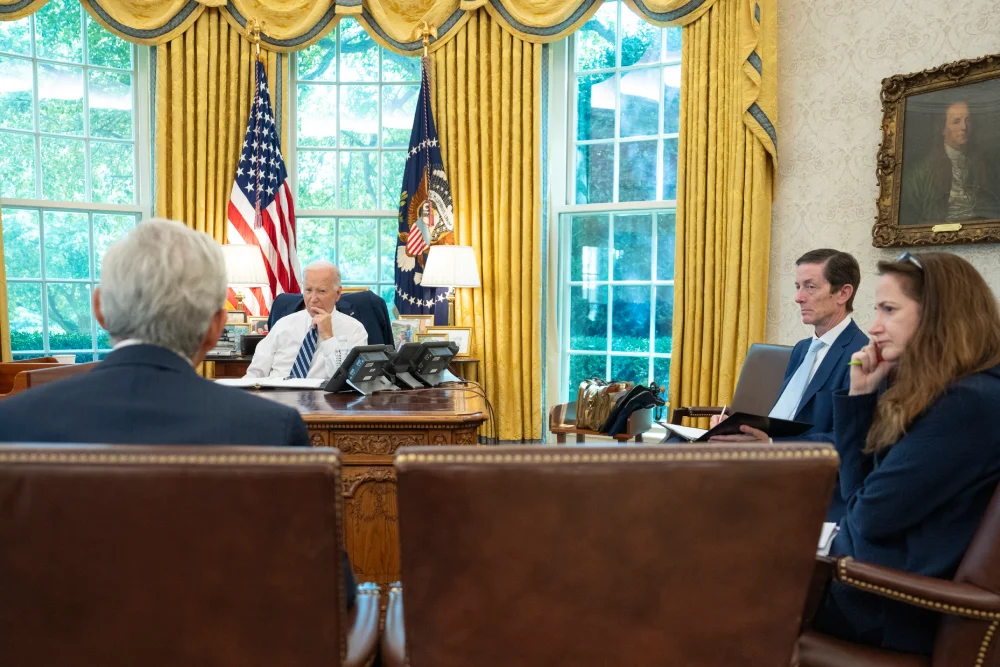A historic prisoner swap with Russia was completed on Thursday in Turkey that secured the release of sixteen high-profile individuals, including Wall Street Journal reporter Evan Gershkovich, Marine veteran Paul Whelan, and Russian-American journalist Alsu Kurmasheva. But the deal has reportedly come at the cost of exchanging alleged hackers, spies, and assassins.
“Today, three American citizens and one American green-card holder who were unjustly imprisoned in Russia are finally coming home: Paul Whelan, Evan Gershkovich, Alsu Kurmasheva, and Vladimir Kara-Murza,” U.S. President Joe Biden said in a press statement.
“The deal that secured their freedom was a feat of diplomacy. All told, we’ve negotiated the release of 16 people from Russia—including five Germans and seven Russian citizens who were political prisoners in their own country,” Biden added.
While neither Moscow nor Washington has officially confirmed the prisoner swap, the involvement of Germany, Poland, Slovenia, Norway, Belarus and Turkey has added to the speculation. Flight tracking data and anonymous sources within both governments had earlier in the day fueled rumors of the impending swap.
Hackers and Spies Part of the Prisoner Swap
In exchange for the 16 “unjustly” detained individuals, Russia had reportedly asked for the repatriation of individuals accused of cybercrimes.
Central to the Russia-U.S. prisoner swap are four Russian nationals: Alexander Vinnik, Vladislav Klyushin, Roman Seleznev, and Vladimir Dunaev. These individuals, convicted on various cybercrime charges, have seen their names mysteriously disappear from the U.S. Bureau of Prisons database, a likely indicator of the prisoner exchange.
Vinnik, linked to the cryptocurrency exchange BTC-е, pleaded guilty to money laundering. Klyushin, a businessman, was sentenced for his role in a $93 million stock market manipulation scheme involving stolen corporate data. Seleznev, known as one of the world’s most prolific cybercriminals, was convicted for credit card fraud that caused over $169 million in losses. Dunaev, a key figure in the Trickbot malware operation, was sentenced for cyberattacks targeting U.S. infrastructure.
The potential hacker exchange has sparked intense debate about the implications for cybersecurity and international relations. As the world watches with bated breath, the outcome of the Russia-U.S. prisoner swap will undoubtedly shape the global landscape for years to come.
This is a developing story and more details will be added as they become available.
Source: Read More

